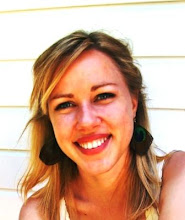Listen to this post:
Sorry for the long hiatus. The road was long that wound between Nashville and Houston and San Francisco. It is good to be back with you, and to be home.
Part of growing up is realizing that one's parents are people, like any others, not heroes or tyrants, but only people with excellent intentions, a few talents, a few flaws, some ambitions both too grand and too small to find a meaningful fruition. Like I said, just people.
But if part of growing up is learning to live with your parents' humanity, part of growing old is learning to live with your own. Let me speak frankly - with my own. Do you know what a mess of dust and diamonds is crammed under my skin? Perhaps it is easier for you to know, to understand, than it is for me. Perhaps that inward vision is the least focused of all.
First the dust.
Hearing daily the work that IJM does, living on a planet that might be slowly roasting, turning anguished eyes away from that last bomb to blow in some country I will never go to, I feel surprise at almost no depravity the human mind can devise, no calamiy that we can visit upon ourselves. That is horrific, but there it is. But I keep a reserve of shock at my own capacity for pettiness, vindictiveness, baseless fear, for gossip and grumbling, and every sin that starts with self-. It, too, is horrific, but there I am. I am not the first to know it of themselves; I shall not be the last.
Now the diamonds.
There it is, still, sputtering in the dark, that divine spark that will not be expatiated. That dream of a dream of heaven that goads me on in the soul's dark night. That echo of an eternal footfall. And if for the dust I bent my head, for this unaccountable splendour I lift it up again. For music and joy, for goodwill and forgiveness, for Rembrandt and Vivaldi and Fielding and even for Tolstoy, I cannot help but lift it again. At our best, we are none of heaven's angels; at our worst, no fiends of hell. No poetic device, in the end, can skip around the fact: we have only ever been men and women, who know what we might be, but are not! what the creation might be, but is not! Why else do you think we laugh and cry (which are in the end, the same thing) - in both, our clay bodies shudder with the gap. A sob and a chuckle are Eden's aftershocks.
It is difficult (I might dare call it the greatest challenge of knowing) to span, quitely simply, what we are, this dust and diamonds, to live in a world, to inhabit a self, that occasions both deep despair and impossible hope. We have arrived (where else?) at a mystery, at Incarnation. Divine spark and indwelt earth.
Jesus came to save us from our sins. That is true. Jesus came to fulfill God's promise to Abraham and all his descendents. That is also true. But I would like to add one more reason to the catechism. Did he not also come to solve the riddle, to be more dust than any son of earth, and to be, with the same breath, the Divine of Divines? To be, while walking down our streets that , sleeping in our houses, eating our bread, the Living return all of all we thought was lost, to show not only who is God, but what a man or a woman was made to be, and glorious hope! he shall yet make to be? Oh, I hope so, I long so, but words, be they many or few, fail the intensity of such a thing.
All Clear!
-
Of all the memories, experiences and things I brought back from Uganda, I
have managed not to bring Malaria with me. I was so happy I had to share it
with ...
16 years ago






1 comment:
You are so young to have discovered this mystery of life, and you state it so beautifully in your prose. The real challenge is to discover who it is that God created us to be. It is a life long search, if we are honest, and only the Maker knows when or whether we will ever be perfected. That is why He gave us Christ.
Post a Comment